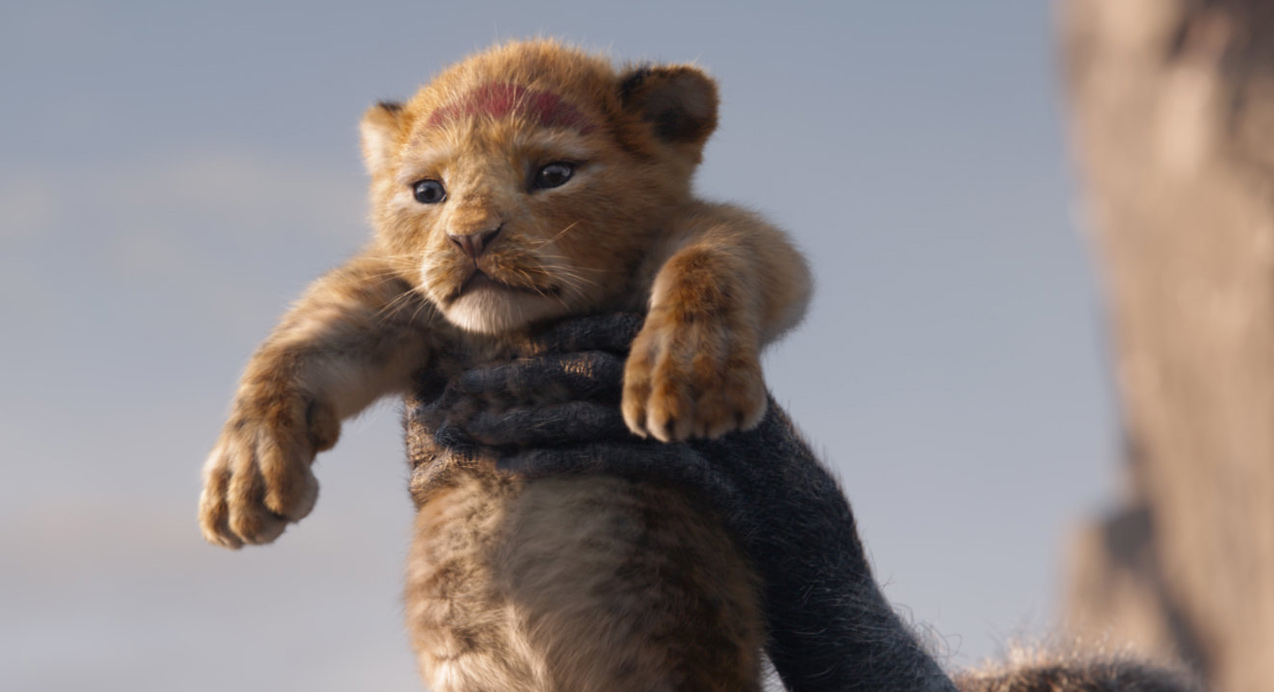The Lion King constantly imitates the original—and that’s a big problem

The Jungle Book director Jon Favreau helms this CG-animated re-imagining of the 1994 Walt Disney classic. Is it as good as the original? Liam Maguren reckons that’s the wrong question to ask.
Is this new Lion King better than the animated one? That’s the burning question on everyone’s mind but here’s a better question: what’s the point of remaking that classic? The sceptic might believe Disney’s reheating your nostalgia in a CGI microwave in order to get your money. The optimist might think the photorealism brings something completely different to the experience. Well, call me a sceptical optimist.
Indeed, the visual details are incredible and the animation’s pretty much flawless on an anatomical level. If you didn’t already know that from watching the trailer, director Jon Favreau proved its worth with his superb take on The Jungle Book. But while that film differed greatly from the 1967 version, 2019’s The Lion King constantly imitates the original—and that’s a big problem.
Exaggerated emotions simply don’t work well with hyper-real animals lacking the required facial expressions. While you can buy a 2D cartoon Simba singing I Just Can’t Wait to Be King, seeing this scientifically-accurate lion hold a high note just looks bizarre. Fortunately, no one dresses in drag and does the hula.
Zazu comes off even worse, pairing the over-expressive voice of John Oliver with the sight of a hornbill’s beak clapping up and down—it’s like watching a puppet made by a taxidermist.
However, with the more low-key performances, the pairing works fantastically. A natural slump in the shoulders and Chiwetel Ejiofor’s calm menace make Scar a convincing threat. Same goes for the hyenas; they still crack jokes, but a dead stare and a simple flare of the teeth quickly turn them into something terrifying. Thrilling moments become more tense thanks to the photorealism, and when the Lions vs. Hyena climax kicks in, they go wild with it. It’s kinda awesome.
Billy Eichner’s Timon and Seth Rogen’s Pumbaa also earn the spotlight with fresh gags performed modestly to suit the anatomical limits of a meerkat and warthog. In particular, their rendition of The Lion Sleeps Tonight put a cheek-cramping smile on my face. As the only musical number that properly works with the photorealism, the moment sees fellow animals clip-clopping in to contribute to the song in their own unique way. It’s so good.
There are story adjustments that should be admired, too. Mufasa has a bit more of an indigenous worldview, preaching how land should be protected and not ‘owned’. There’s a pinch of emphasis on how overconsumption depletes the Earth’s natural resources. They even touch on the bleaker meaning behind Hakuna Matata.
But a ‘bit’, a ‘pinch’ and a ‘touch’ aren’t enough for a film that should have chomped, leapt, and embraced its difference as a (Pride) Rock Opera that puts nature first. Had Favreau been able to step out of the shadow of the original, this could have been something truly worthwhile.
Unfortunately, the film’s obedience to the past holds it back from changing and evolving into something far better. In an unintended way, 2019’s The Lion King perfectly reflects our current well-meaning but lacking attitude towards the environment.
















